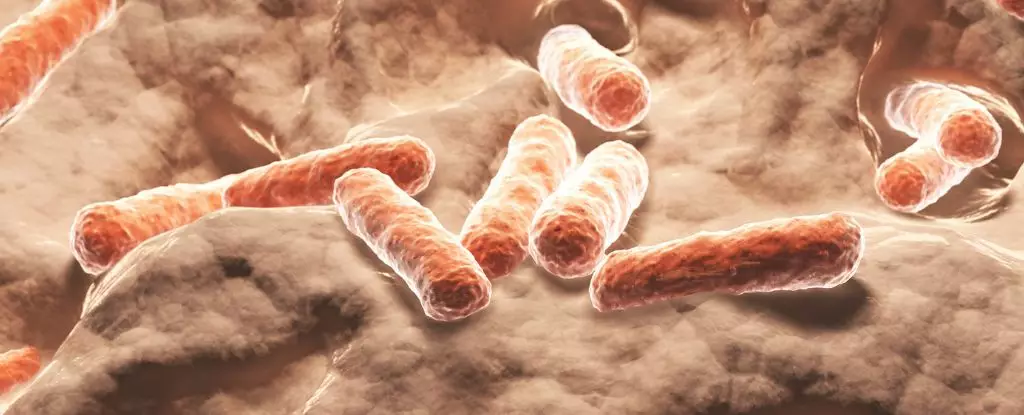Recent scientific advancements have unveiled intriguing insights into how gut microbes can influence blood sugar levels and sugar cravings in both mice and humans. A team from Jiangnan University in China has focused on harnessing these natural processes to potentially create alternatives to pharmaceutical drugs, such as Ozempic, which are commonly used to manage type 2 diabetes. The core of their research revolves around a specific gut microbe and its metabolites—substances produced during digestion that can profoundly impact our physiological responses, particularly concerning glucose regulation.
Glucagon-like peptide-1 (GLP-1) is a critical hormone involved in regulating blood sugar and appetite. It is naturally synthesized in the body in response to food intake. However, individuals with type 2 diabetes often exhibit diminished GLP-1 activity, contributing to excessive glucose levels and weight gain. Current medications, including semaglutide—an ingredient found in Ozempic—act by mimicking GLP-1’s effects, thereby facilitating better glycemic control. This adds a layer of complexity: while effective, these pharmaceuticals do not address the underlying mechanisms of hormone production and release.
Emerging research underscores the intricate communication between the gut microbiome and the brain in shaping dietary preferences and cravings. Gut microbes send signals that greatly influence the desire for particular food types, especially sugars. The authors of the study highlight a gap in understanding how specific genes, gut flora, and metabolites collaborate to regulate these cravings. The newly identified gut microbe, Bacteroides vulgatus, and its metabolites seem to play a pivotal role in this process, acting as modulators of sweet cravings.
The study conducted on diabetic mice revealed a fascinating correlation: the abundance of Bacteroides vulgatus was linked to the secretion of FGF21, a hormone closely associated with sugar cravings. The researchers discovered that a specific gut protein called Ffar4 was essential for maintaining the population of B. vulgatus. In instances where mice could not produce this protein, the levels of B. vulgatus diminished, leading to decreased FGF21 secretion and, consequently, increased sugar cravings. This interplay was also supported by observations in humans, wherein genetic variants affecting FGF21 levels appeared more frequently in individuals who gravitate toward sugary foods.
The implications of this research are profound, suggesting pathways for natural interventions that could complement existing diabetes treatments. If gut microbes can be strategically modulated to enhance the secretion of GLP-1 and FGF21, it could pave the way for personalized dietary and microbiome-focused therapies aimed at not only controlling blood sugar levels but also mitigating cravings for unhealthy foods. This could represent a significant shift in how we approach diabetes management—moving from a dependence on external medications toward harnessing the body’s natural mechanisms.
As we delve deeper into the relationship between gut health and metabolic disorders, it is crucial to prioritize research that investigates how to naturally optimize microbial communities within our intestines. Future studies should also aim to explore dietary interventions that could positively influence the microbiome, potentially leveraging findings from recent studies to develop practical applications. Understanding how variations in the gut microbiome contribute to individual metabolic profiles and cravings may soon lead to tailored dietary recommendations and probiotic treatments.
The discovery that gut microbes have the potential to regulate blood sugar levels and sugar cravings opens up exciting avenues for research and treatment in diabetes management. As scientists continue to uncover the intricate mechanisms by which the gut microbiome interacts with our physiology, we may soon witness a paradigm shift that emphasizes natural regulation and personalized approaches in healthcare, offering hope for more effective management of chronic metabolic conditions like diabetes.


Leave a Reply